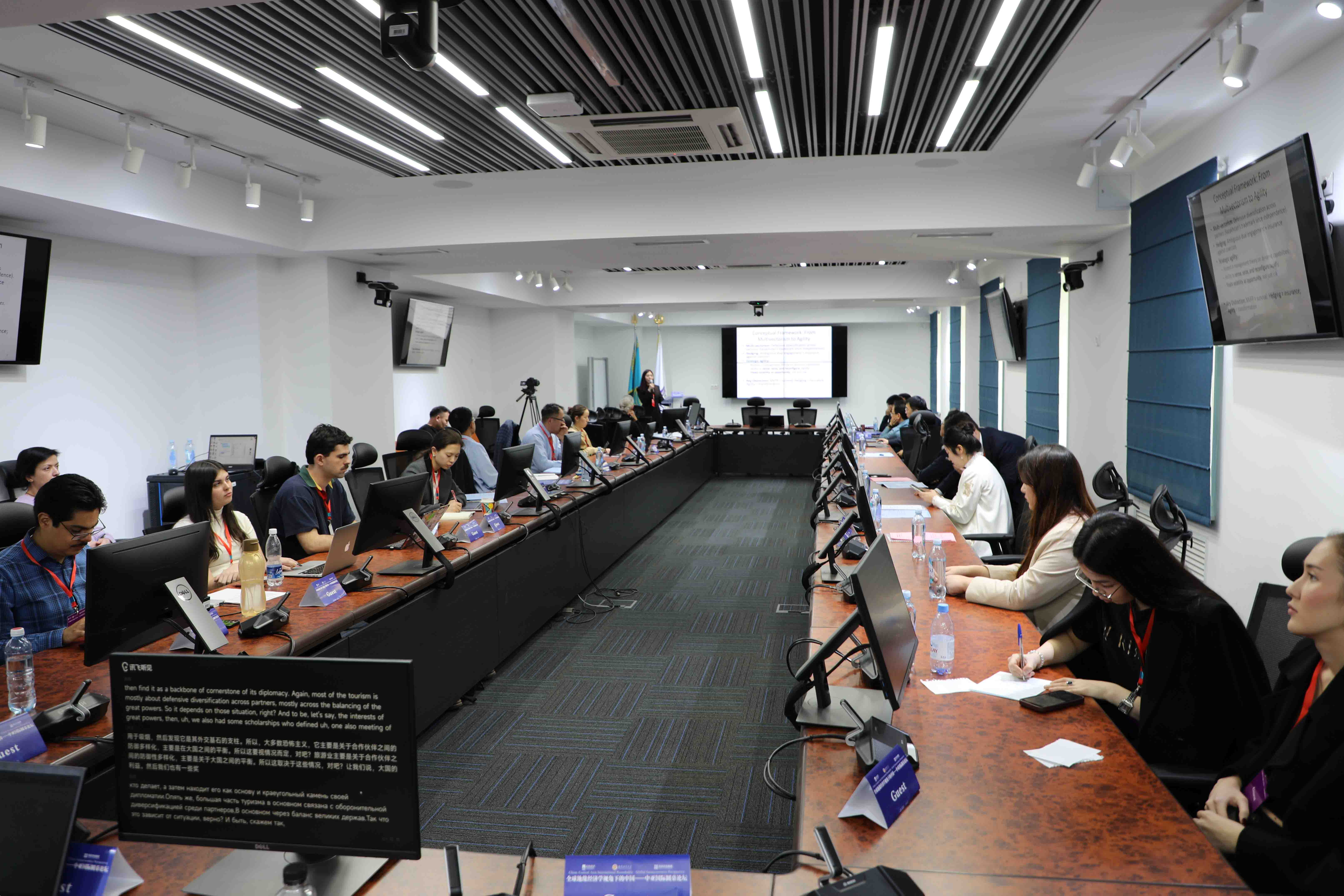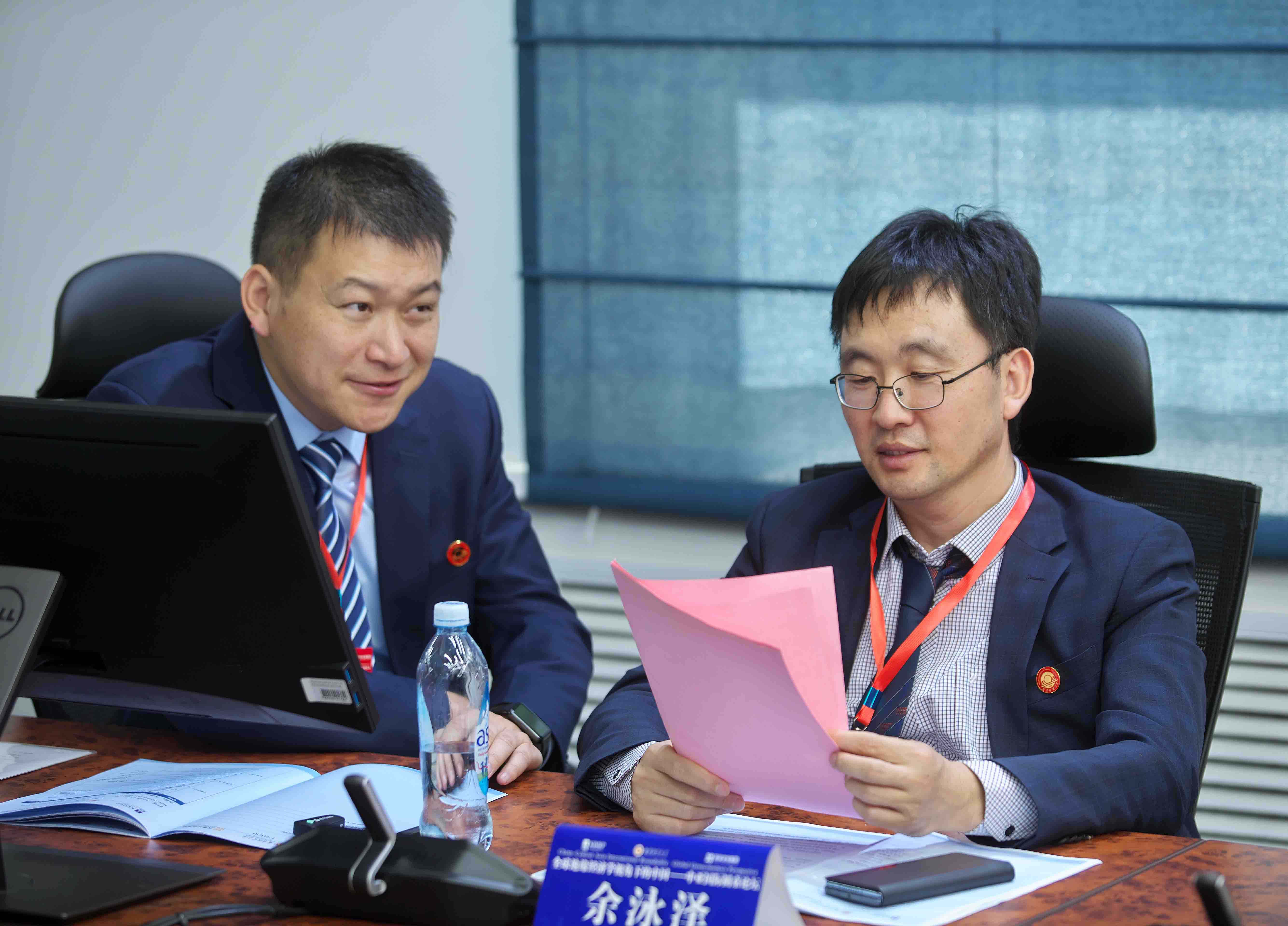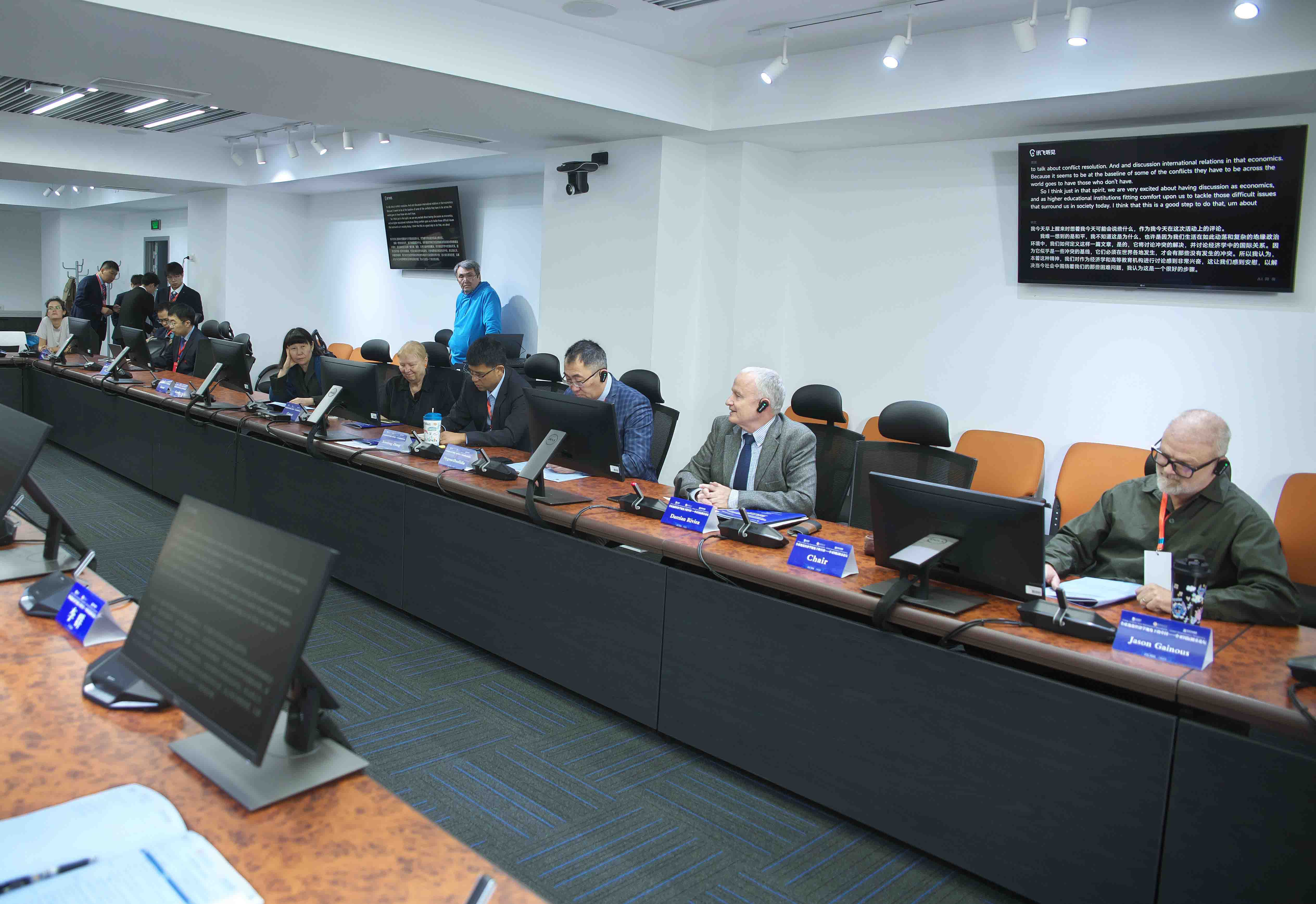On October 14, 2025, KIMEP University hosted the China–Central Asia Roundtable: A Global Geoeconomics Perspective, a roundtable event organized by the China and Central Asia Studies Center with the participation of representatives from the Nanjing University of Finance and Economics (NUFE) and SOHO Culture Group (China). The event’s guest of honor was Ms. Xiaomin Huang, Education Consul of the Consulate General of the People’s Republic of China in Almaty.
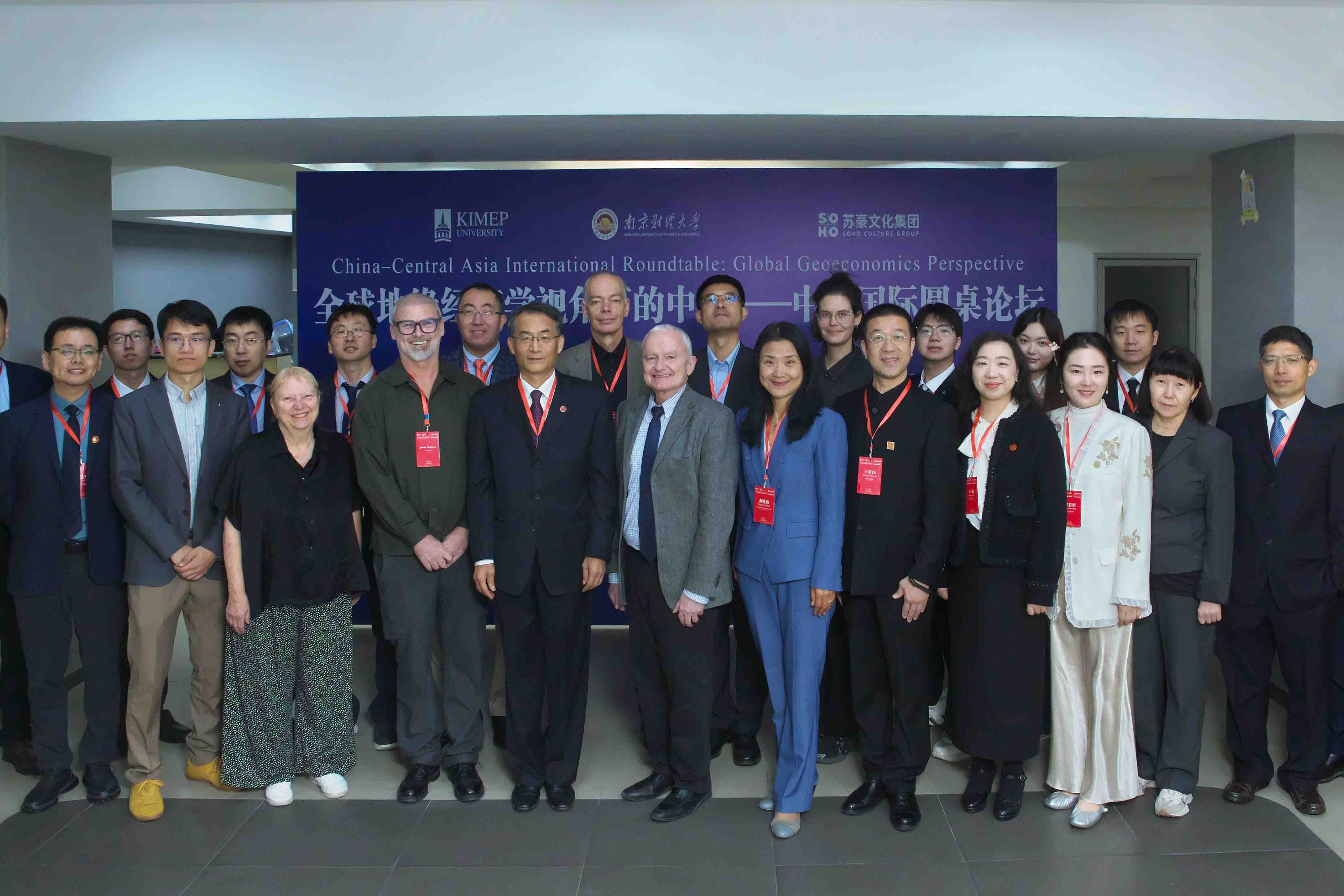
Roundtable: "China–Central Asia Roundtable: A Global Geoeconomics Perspective", October 2025, KIMEP University.
Opening Session
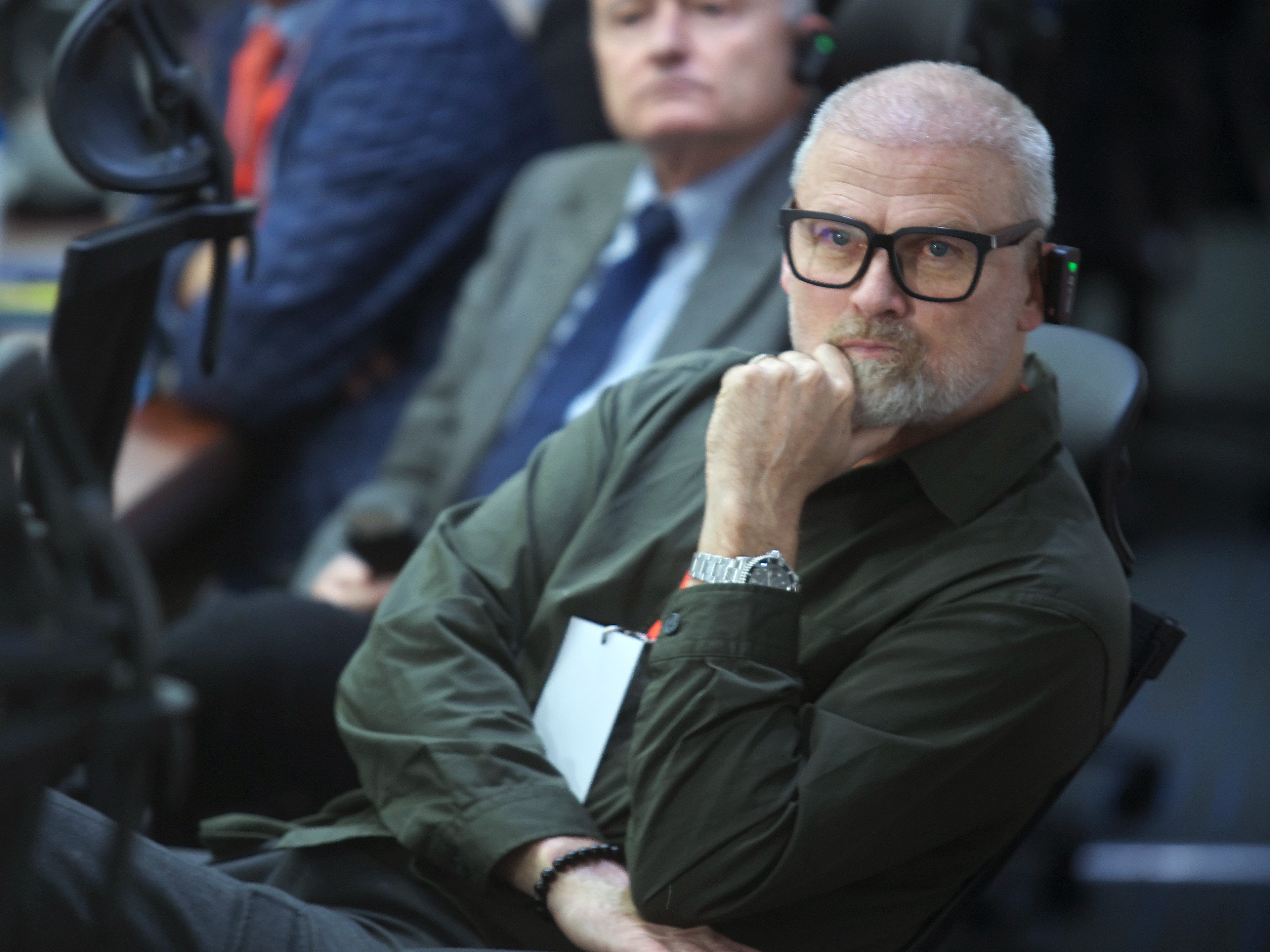
Prof. Jason Gainous, Dean, College of Social Sciences, KIMEP University
The Opening session was moderated by Prof. Jason Gainous, Dean of the College of Social Sciences at KIMEP University. The event officially began with welcome remarks by Prof. Damian Riviez, Vice President for Academic Affairs at KIMEP University. In his address, Dr. Riviez reflected on the meaning of peace in an era of geopolitical turbulence, linking the concept to conflict resolution, international dialogue, and the underlying economic factors that often shape global tensions. He emphasized the importance of academic collaboration as a means to strengthen understanding and peaceful exchange, expressing optimism that the roundtable would contribute to constructive dialogue between partner institutions.
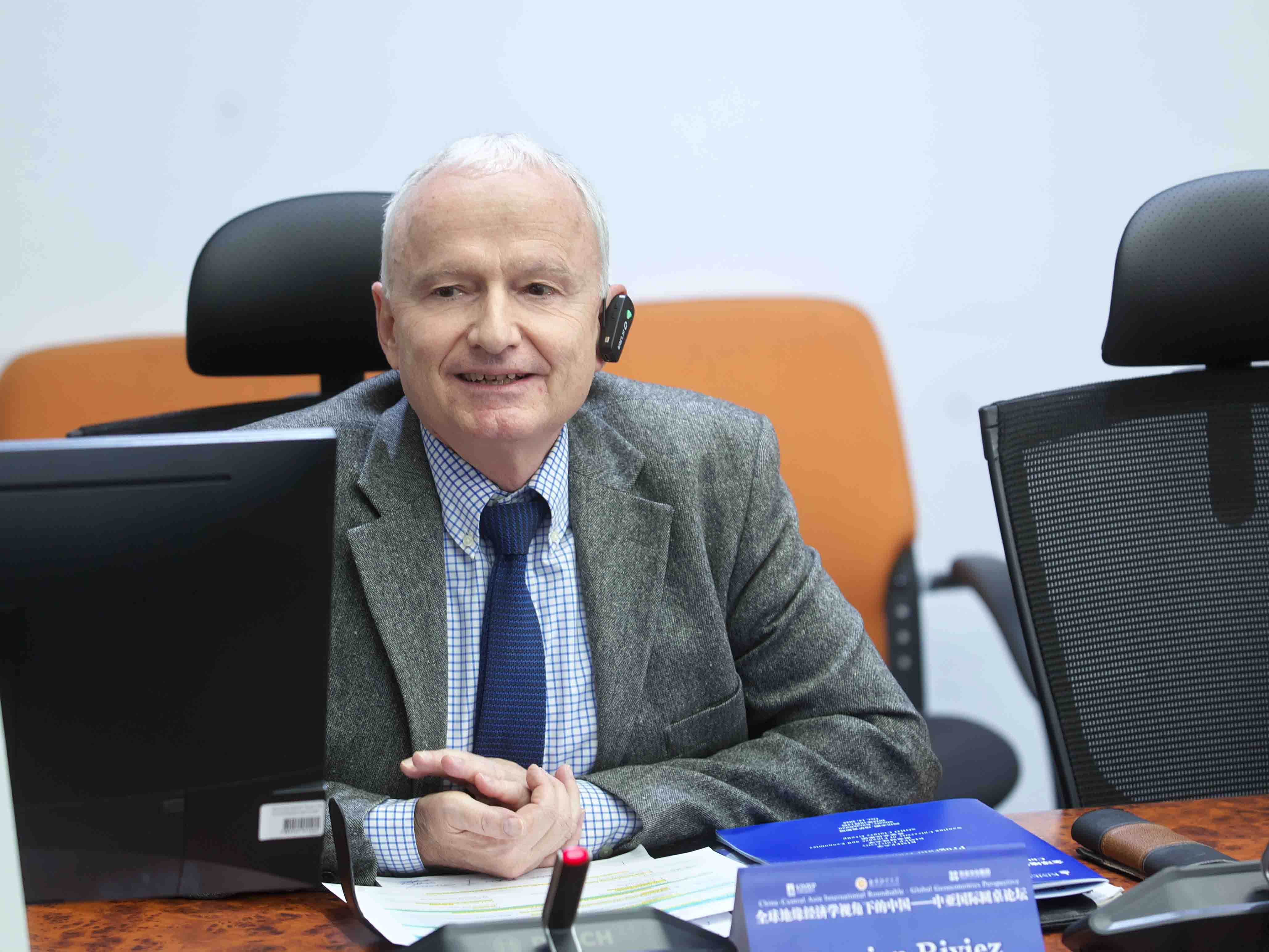
Prof. Damian Riviez, Vice President of Academic Affairs, KIMEP University
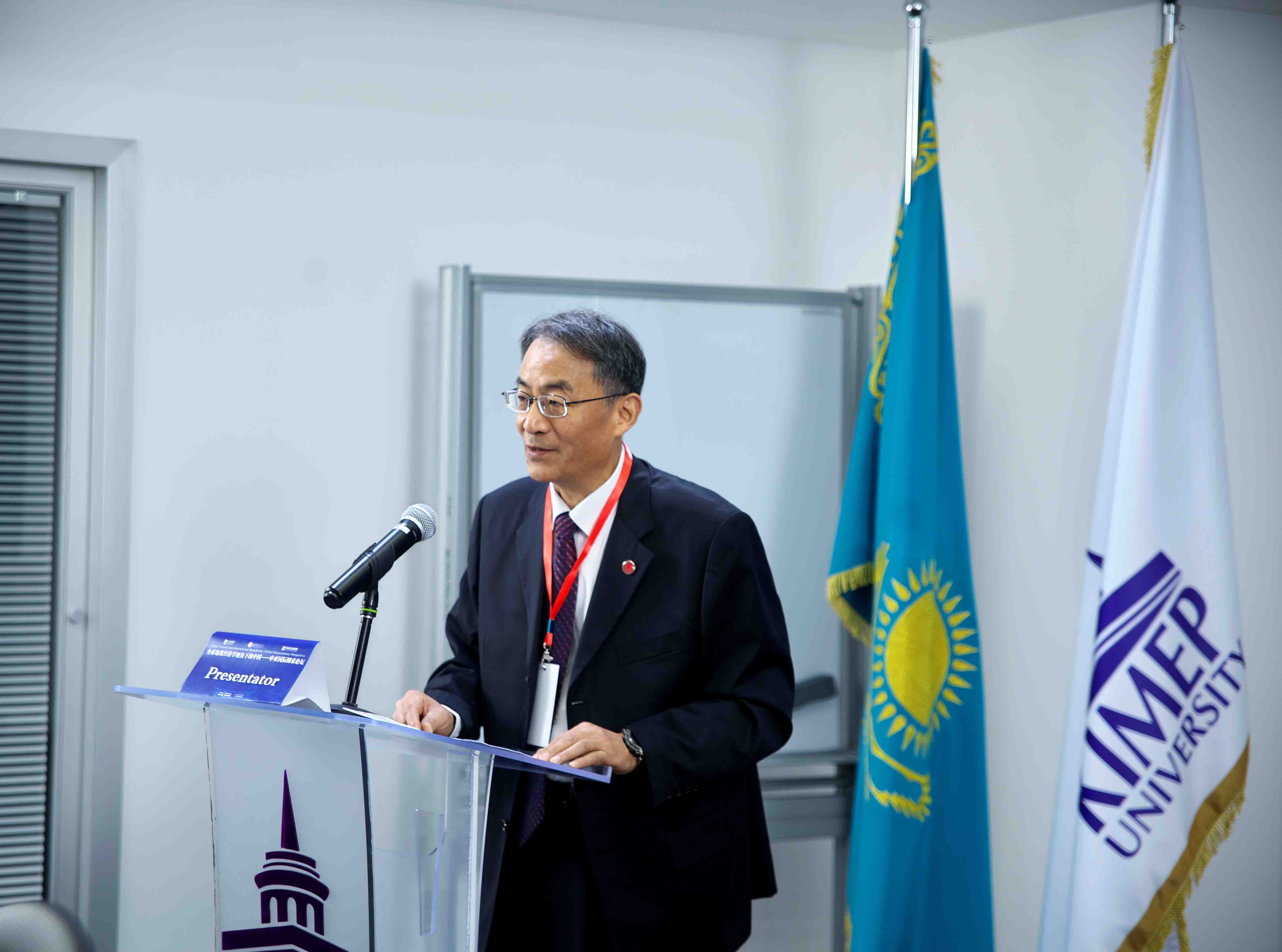
Prof. Qun Li, Vice President & Deputy Party Secretary, Nanjing University of Finance & Economics
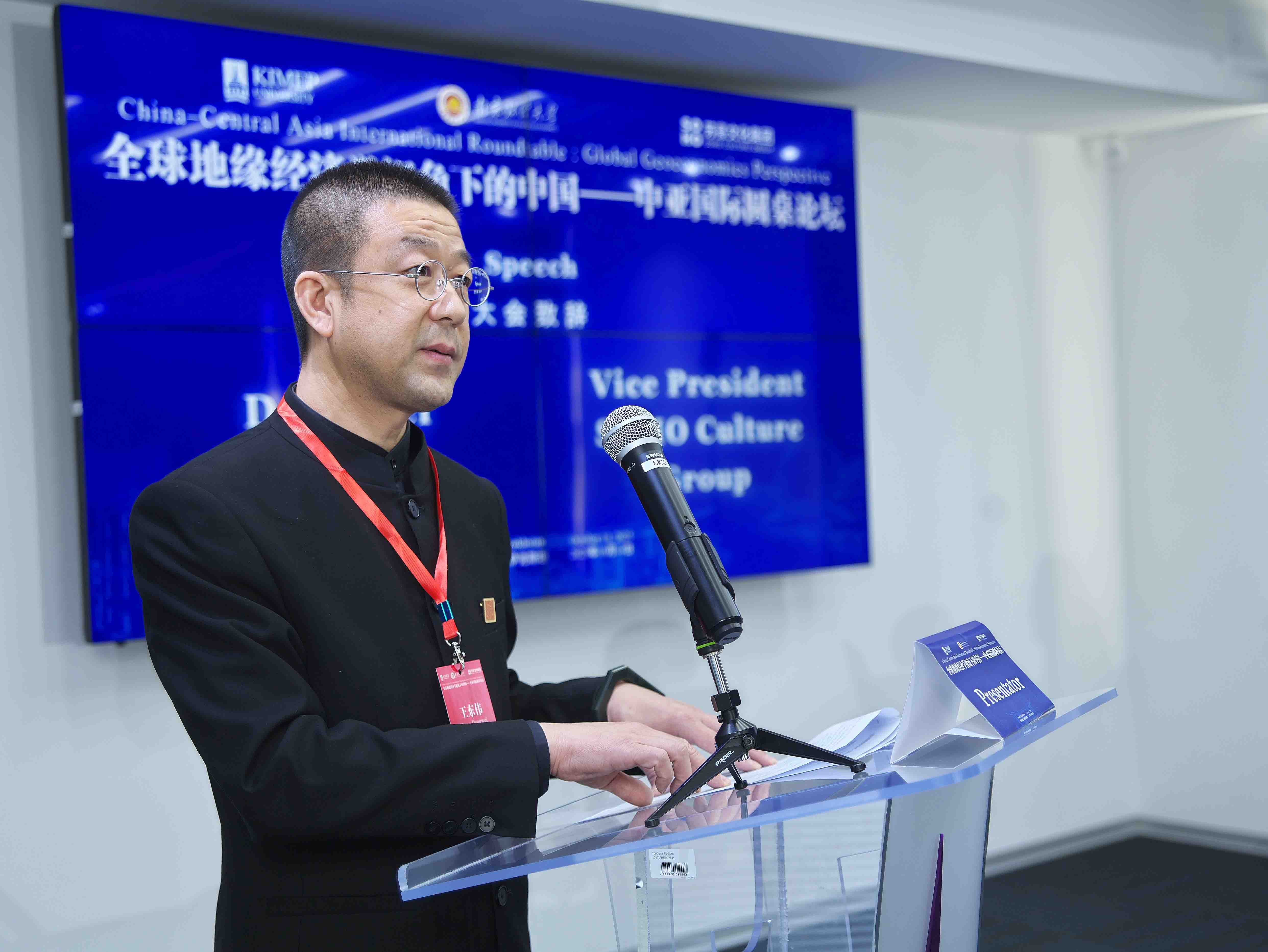
Mr. Dongwei Wang, Vice President, SOHO Culture Group
Additional opening addresses were given by Prof. Qun Li (Vice President, Deputy Party Secretary, NUFE), Ms. Xiaomin Huang (Education Consul, PRC Consulate General in Almaty), and Mr. Dongwei Wang (Vice President, SOHO Culture Group). In her address, Ms. Huang noted that the restructuring of global systems has made education, technology, and talent development key drivers of progress. She highlighted the expanding opportunities for cooperation between China and Central Asian countries in fields such as energy transition, digital economy, transportation, and environmental protection. Ms. Huang also underlined Almaty’s historic role as a center of culture and education in the region and reaffirmed the Consulate’s commitment to serving as a bridge for institutional cooperation and people-to-people exchange.
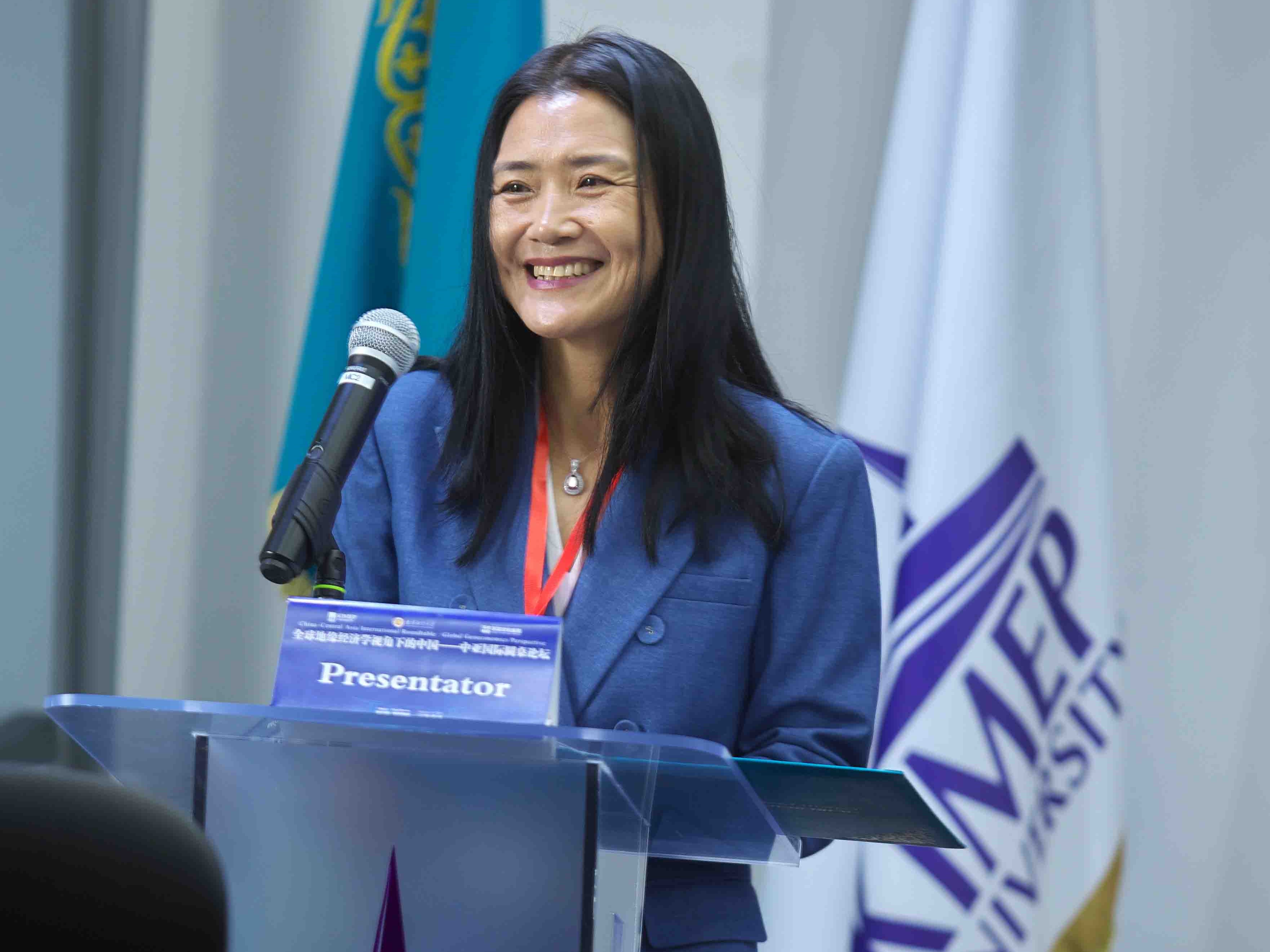
Ms. Xiaomin Huang, Education Consul, PRC Consulate General in Almaty
Morning Session: Keynote Speakers
The morning session featured four keynote presentations examining the evolution and practice of geoeconomics from multiple perspectives. Dr. Gerald Pech from the Department of Economics at KIMEP University opened with a presentation titled “The Geoeconomics of Central Asia: A New Label for an Old Problem?”, analyzing how Central Asia’s structural economic dependencies, particularly in trade, resources, and infrastructure, continue to shape regional dynamics. He argued that the region’s challenges remain rooted in long-standing historical patterns despite the changing terminology. Prof. Yongze Yu, Dean of the School of International Economics and Business at NUFE, followed with another presentation discussing “The Impact of China’s Economic Growth on Inclusive Development in the World.” His presentation emphasized China’s contribution to global inclusive growth through industrial cooperation, digital transformation, and sustainable development initiatives under the Belt and Road framework.
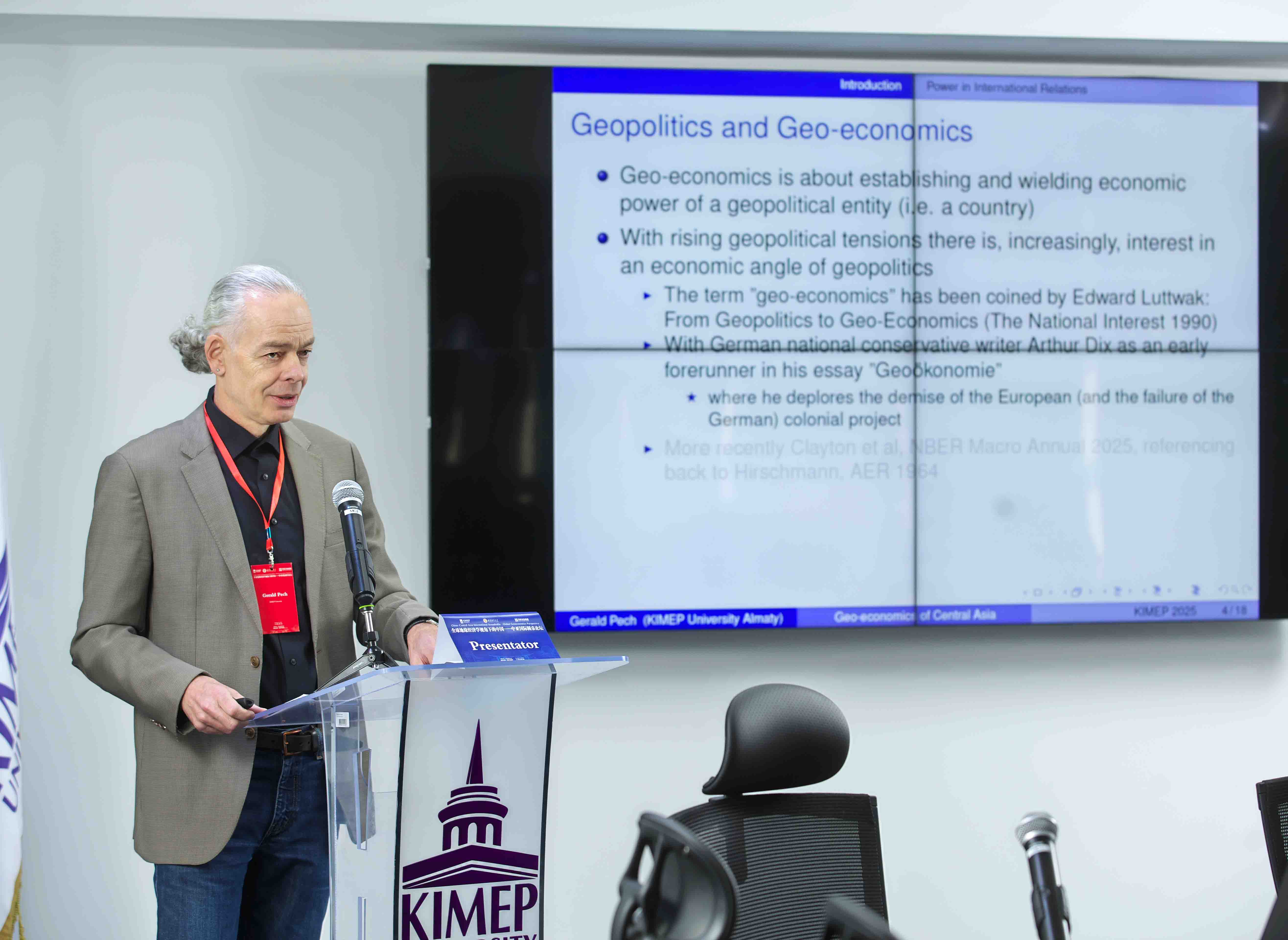
Dr. Gerald Pech, Associate Professor, Department of Economics, KIMEP University
Continuing the discussion from an applied perspective, Mr. Dongwei Wang, Vice President of SOHO Culture Group, delivered “Silk Road Resonance: A New Era of Digital Exchange,” in which he described the revitalization of cultural and economic ties between China and Kazakhstan through new forms of digital connectivity, cross-border e-commerce, and infrastructure collaboration, where he characterized these developments as the modern continuation of the Silk Road tradition.
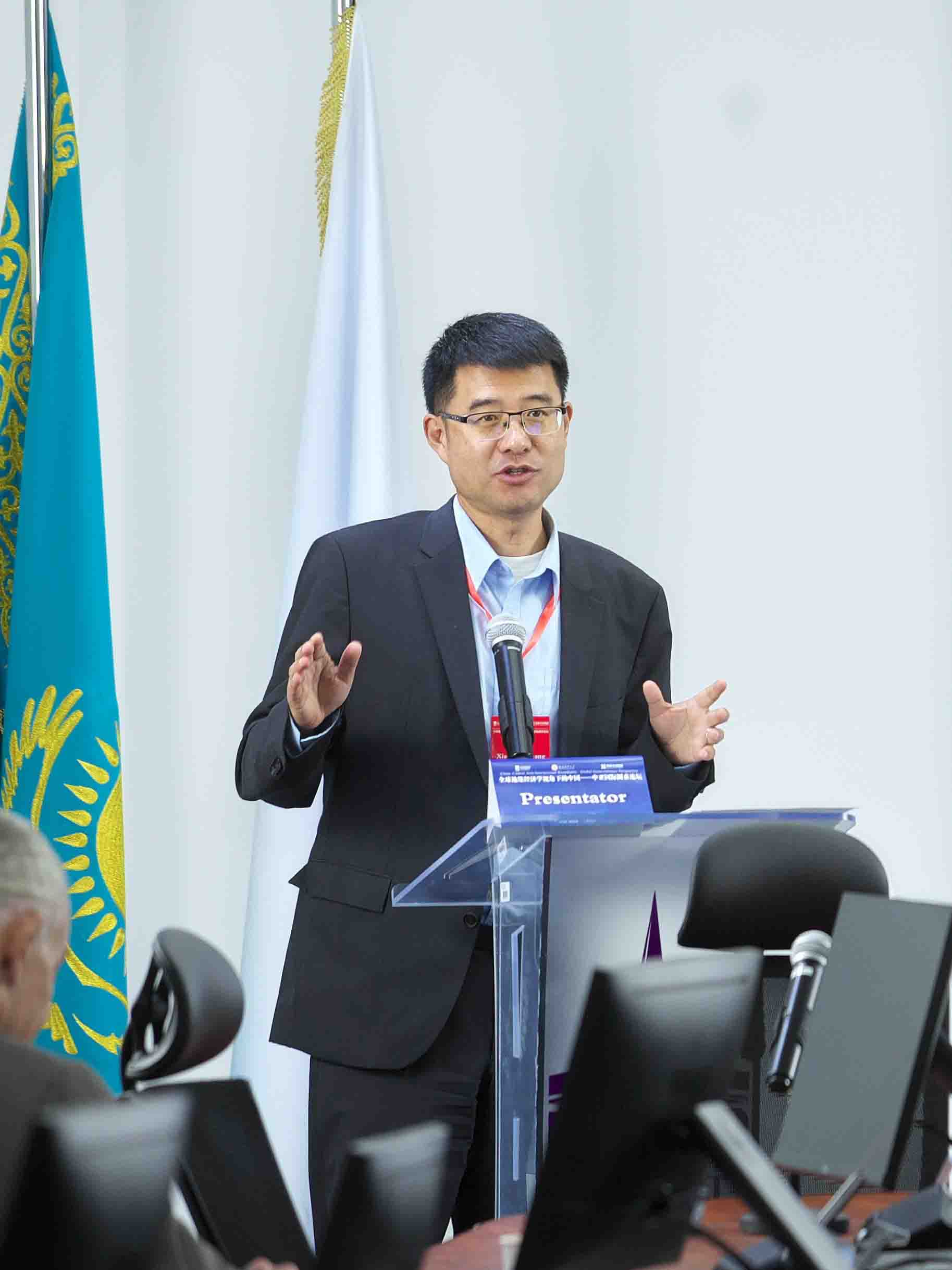
Prof. Xiaotong Zhang, Director of CCASC, Professor, KIMEP’s Department of Political Science and International Relations
Prof. Xiaotong Zhang, Director of CCASC and Professor at KIMEP’s Department of Political Science and International Relations, concluded the morning session with “The Intellectual History of Geoeconomics: Past and Present.” His presentation traced the development of geoeconomics from its conceptual foundations in the 1920s to its contemporary reinterpretations under globalization and interdependence. He emphasized that the “geo” in geoeconomics is not merely symbolic—it highlights the centrality of geography, space, and positionality in shaping how economic power is exercised. Unlike economic statecraft, which focuses on the instrumental use of economic tools such as sanctions, aid, or trade to achieve political goals, geoeconomics investigates the spatial structures and territorial logics within which such tools acquire meaning and effect. Prof. Zhang further distinguished geoeconomics from geopolitics, explaining that while geopolitics deals with territorial control through military means, geoeconomics relies on economic instruments to create leverage and dependency, mapping interdependence rather than conflict. His lecture concluded by showing how these distinctions—between geopolitics, geoeconomics, and economic statecraft—help clarify the mechanisms through which states project influence, and how the evolving China–Central Asia relationship can be better understood through the spatial and strategic lens of geoeconomics.
Afternoon Session: Roundtable Discussion
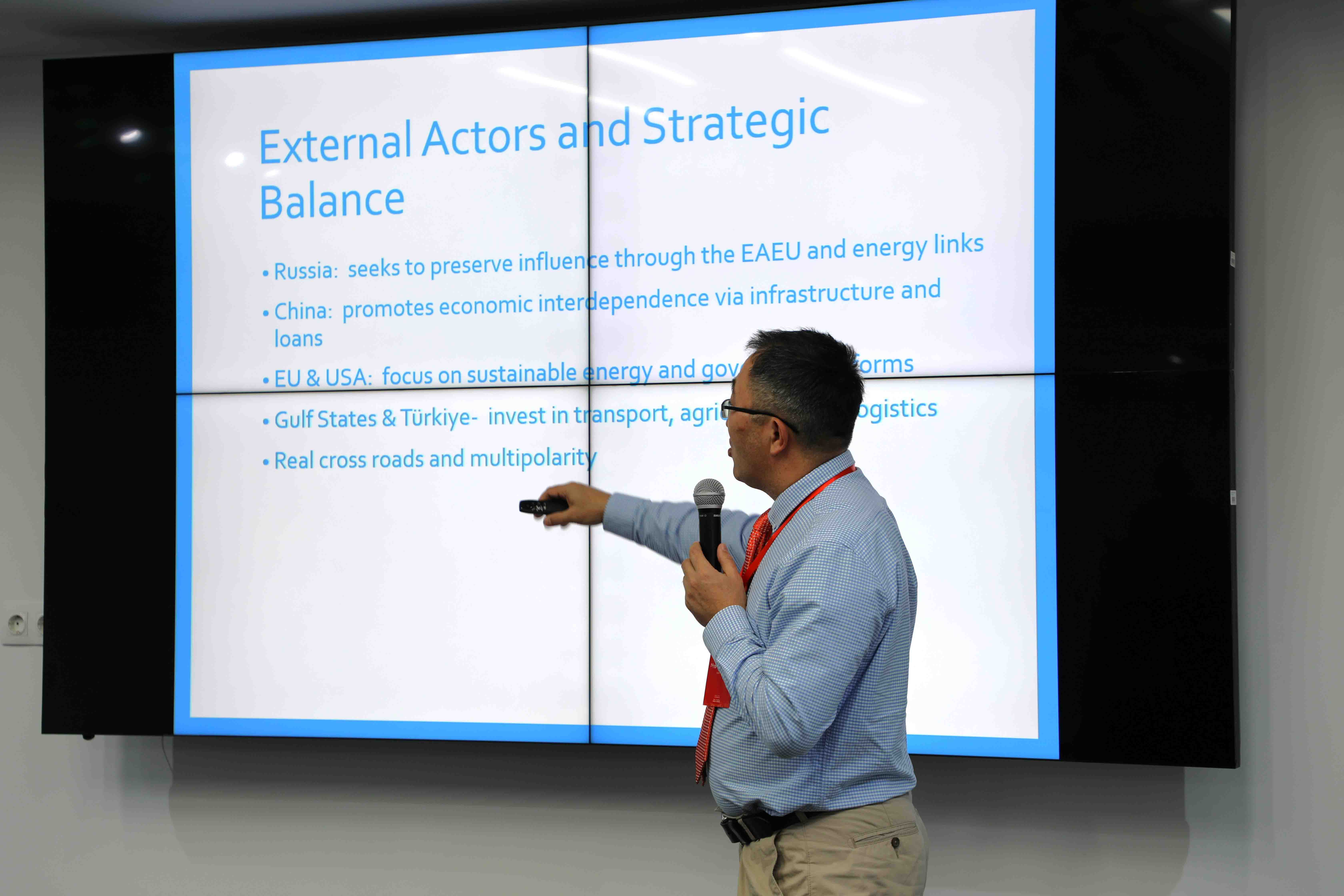
Dr. Nygmet Ibadildin, Chair & Assistant Professor at KIMEP's Department of Political Science and International Relations
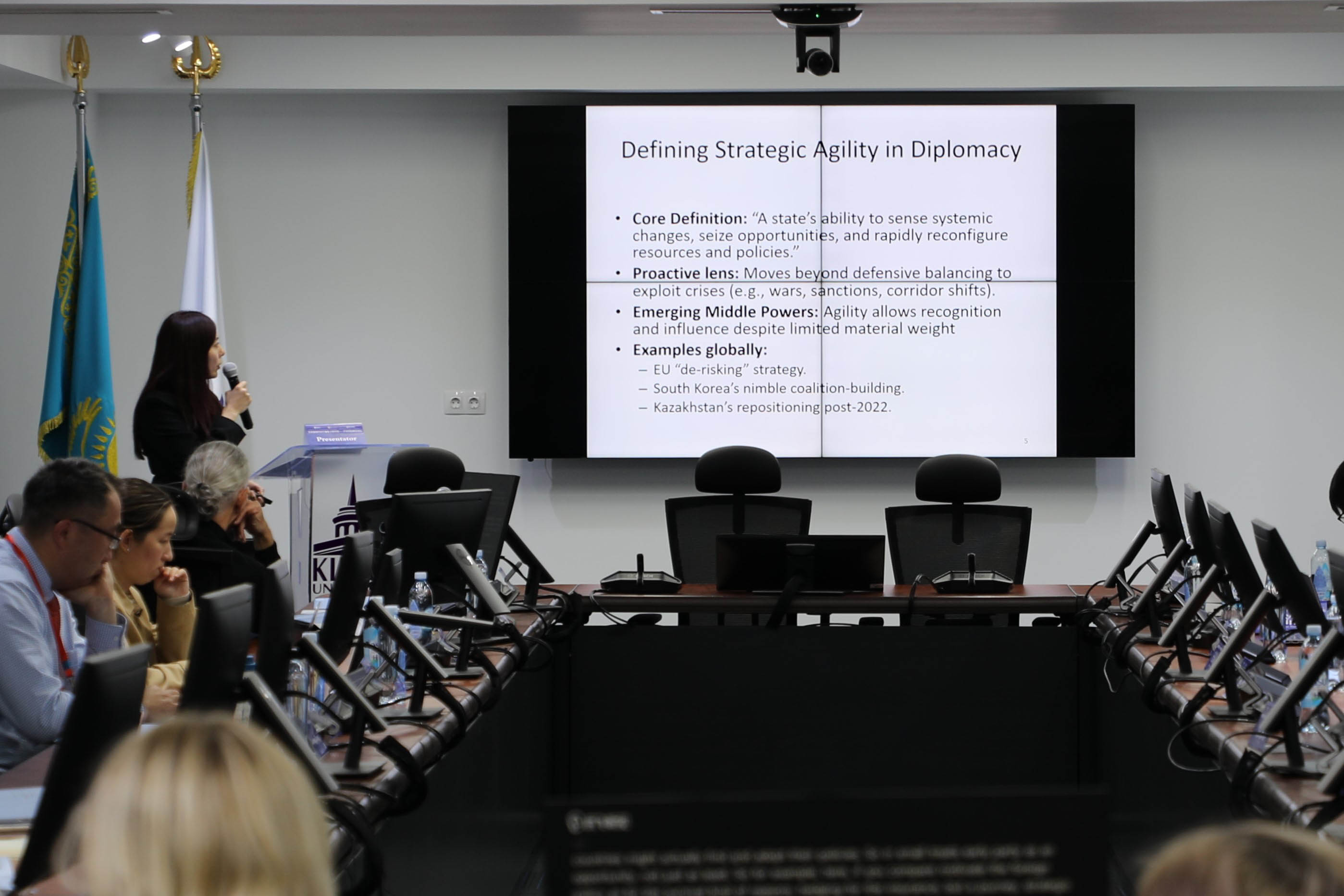
Dr. Assylzat Karabayeva, Assistant Professor at KIMEP's Department of Political Science and International Relations
Dr. Assylzat Karabayeva, Assistant Professor at the Department of Political Science and International Relations at KIMEP University, followed with “Analysis of Central Asia’s Strategic Agility from a Geoeconomic Perspective,” introducing the concept of strategic agility as an evolution of the region’s traditional multi-vector diplomacy. Drawing from international management theory, she argued that agility enables states to anticipate change, adapt rapidly, and leverage volatility for advantage rather than risk, using examples from Kazakhstan, Uzbekistan, and Turkmenistan to illustrate how Central Asia balances Chinese investment, Western engagement, and regional cooperation.
Further contributions came from Prof. Guanyi Li, Vice Dean of the School of International Economics and Business at NUFE, who discussed industrial development and cultural exchange within China–Central Asia geoeconomic cooperation, and Prof. Haoran Miao, Deputy Director of NUFE’s International Cooperation and Exchange Office, who examined collaborative models for cultivating accounting and finance talents in the region. The afternoon session concluded with an interactive discussion moderated by Dr. Assylzat Karabayeva.
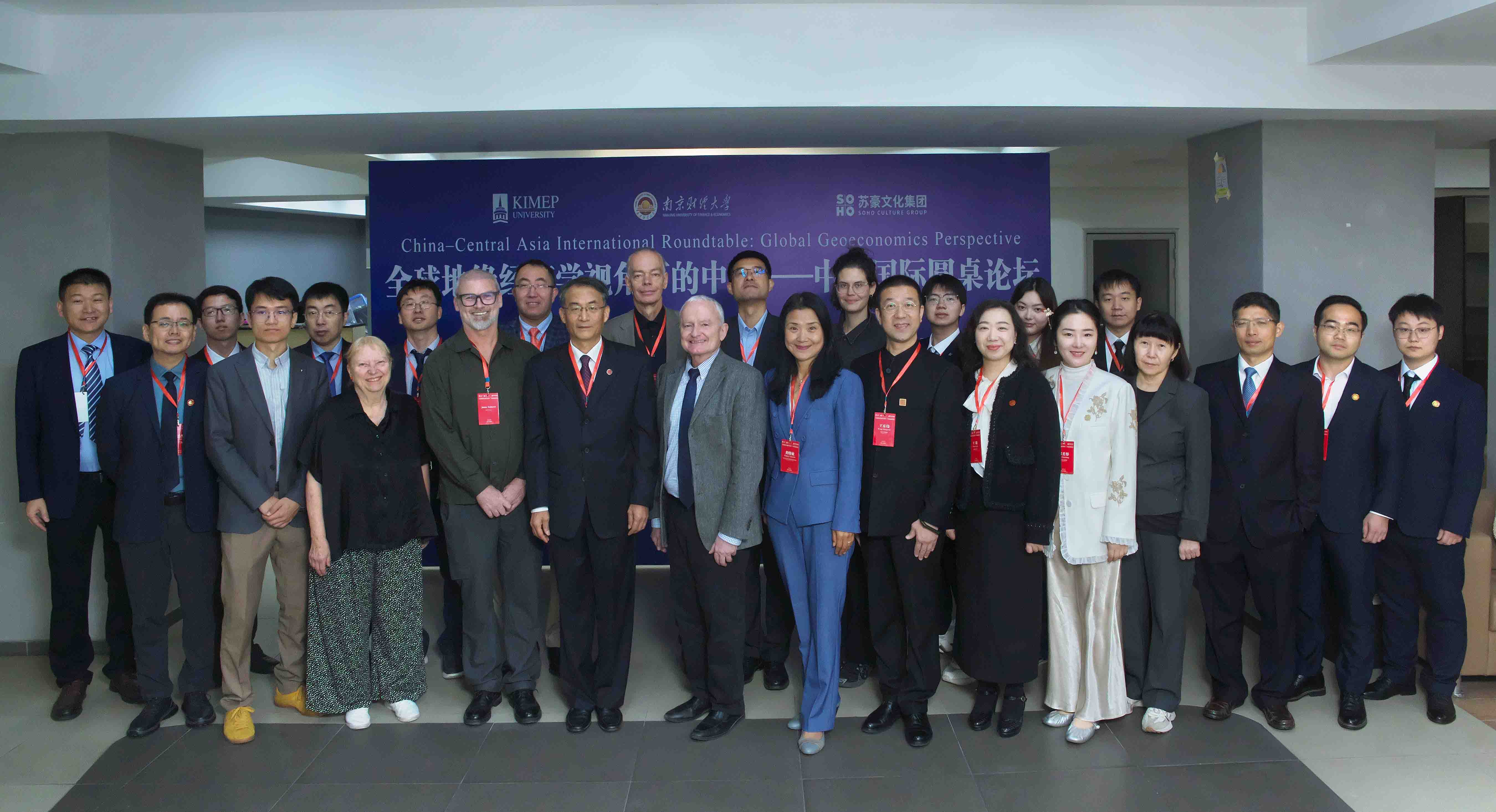
Group Photo: "China–Central Asia Roundtable: A Global Geoeconomics Perspective", organized by CCASC - KIMEP, with the participation of representatives from the Nanjing University of Finance and Economics and SOHO Culture Group
The day-long event concluded with closing remarks by Prof. Qun Li, Prof. Xiaotong Zhang, and Mr. Dongwei Wang, who expressed appreciation for the exchange of perspectives and reaffirmed the value of continued academic and institutional cooperation.

